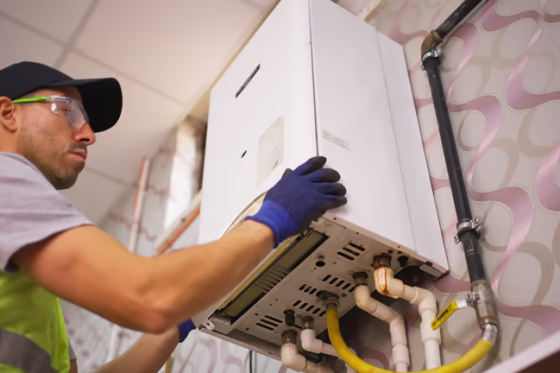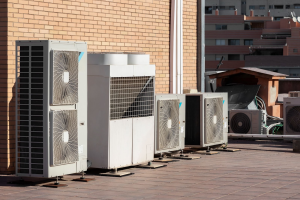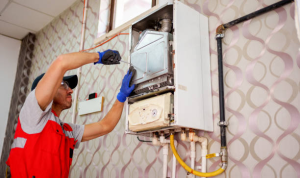Gas boilers are essential for comfortable living in homes throughout Bristol. They provide both warmth and hot water, and when working properly, are energy-efficient and reliable. However, like any mechanical system, boilers have a limited lifespan. Over time, they become less efficient, more prone to breakdowns, and potentially unsafe. This blog from North Bristol Cooling & Heating LTD explores the telltale signs that it’s time to replace your boiler, the benefits of upgrading, and what to expect during the process.
The Importance of Recognising When It’s Time to Replace
Delaying a boiler replacement can lead to rising energy costs, inconsistent heating, frequent repairs, and in some cases, health risks. Many homeowners continue to use old or underperforming boilers because the system still “works,” but they overlook the growing inefficiencies and potential safety issues that develop over time. Modern gas boilers are not only more efficient but also safer, quieter, and capable of integrating with smart technologies. By recognising the signs of failure early, you can plan a timely replacement and avoid emergency situations, especially during winter.
Age of the Boiler: The Most Common Indicator
The average lifespan of a gas boiler is around 10 to 15 years. Beyond this period, internal components begin to wear out and the risk of failure increases significantly. Even with regular servicing, older boilers tend to lose efficiency, which translates to higher energy usage and increased monthly bills.
If your boiler is more than 15 years old, you are likely using outdated technology that lacks condensing functionality. Non-condensing boilers typically operate at only 60–70% efficiency, while condensing models exceed 90%. This difference means you’re paying more for gas that isn’t effectively heating your home.
Older boilers are also incompatible with modern upgrades such as weather-compensating thermostats or smart controls. In the long run, replacing your outdated unit is more economical than continuing to maintain it.
Recurring Repairs and Escalating Maintenance Costs
Another clear sign that your boiler may need replacing is the frequency and cost of repairs. Occasional fixes, such as replacing a pressure valve or thermostat, are to be expected. However, if you’re calling out an engineer more than once or twice a year, it may be time to evaluate the system as a whole.
Common recurring issues include ignition failure, low pressure, leaking seals, sensor problems, or circuit board failures. The combined cost of labour and parts can quickly exceed what you’d spend on a new, efficient system. Homeowners often fall into a cycle of “patch repairs,” believing it’s the cheaper solution, but end up paying more in the long term.
At North Bristol Cooling & Heating LTD, we always provide honest advice about whether a repair is cost-effective or if replacement would deliver better value and peace of mind.
Fluctuating Heating and Hot Water Performance
If your boiler no longer delivers consistent heating or takes too long to warm up, the problem might go beyond just a radiator or thermostat. Uneven heat distribution, slow response times, or regular loss of pressure can all signal that your boiler is struggling to meet the heating demands of your home.
A common cause of poor performance is sludge build-up in the system. While power flushing can offer temporary relief, it doesn’t address underlying boiler inefficiencies. In older units, internal corrosion or limescale can restrict heat exchanger function, making it harder to maintain your desired temperatures.
Additionally, if you’re experiencing lukewarm showers or inconsistent water temperature, your boiler’s heat exchanger or diverter valve may be deteriorating. In such cases, upgrading to a new boiler ensures a stable, fast hot water supply and better performance throughout the home.
Unusual Noises, Leaks, and Smells
Boilers should operate quietly. If your unit has started to make strange noises, like banging, clunking, gurgling, or hissing, this may indicate internal problems. These could stem from a blocked heat exchanger, air in the system, or low water pressure.
Water leaks around the boiler are equally problematic, as they can damage surrounding floors or walls and pose an electrical hazard. More seriously, any unusual smells or soot marks should never be ignored. A properly functioning boiler burns with a clean blue flame. If the flame turns yellow or orange, it could signal incomplete combustion and potential carbon monoxide release.
Carbon monoxide is an odourless, colourless gas that can cause serious illness or death. A boiler giving off strange smells or triggering your CO detector must be shut off immediately and inspected by a Gas Safe registered engineer. North Bristol Cooling & Heating LTD always performs comprehensive flue gas analysis and safety checks during servicing and replacements.
Lack of Energy Efficiency and Rising Bills
A noticeable increase in your energy bills, despite consistent usage patterns, can indicate that your boiler is working harder than it used to. Internal wear and inefficient combustion mean more fuel is burned to achieve the same level of heat.
Installing a new high-efficiency boiler can significantly reduce your monthly energy consumption. In many Bristol homes, we’ve observed fuel savings of up to 25–30% after switching to an A-rated condensing boiler. These systems use a secondary heat exchanger to recover heat that would otherwise be lost through the flue.
This is not only good for your wallet but also aligns with government and environmental objectives to reduce carbon emissions in domestic settings.
Incompatibility with Modern Heating Controls
The heating industry has evolved dramatically in the past decade. Smart thermostats now allow homeowners to control their heating remotely, schedule temperatures based on occupancy, and even learn user behaviour. However, many older boilers cannot communicate with these advanced systems.
If your boiler lacks compatibility with smart controls or modulating thermostats, you’re missing out on both convenience and additional efficiency. Modern heating systems can be zoned, allowing different rooms or floors to be heated at different times, maximising comfort and reducing waste.
When assessing older installations, North Bristol Cooling & Heating LTD offers smart-ready options with every boiler replacement package.
Replacement as a Strategic Upgrade
While it’s tempting to delay replacement until your boiler breaks down completely, this often results in inconvenient emergencies. Winter failures can leave families without heat and hot water during the coldest months, at a time when engineers are in the highest demand.
Instead, we recommend planning boiler replacement during spring or early autumn. This allows time for property assessments, flexible scheduling, and budget preparation. The process becomes less stressful and allows homeowners to explore optional upgrades like improved insulation, new radiators, or integrating hot water cylinders for larger households.
What to Expect from a Replacement Process
Working with a professional installer ensures the transition from old to new is smooth and compliant with all safety regulations. At North Bristol Cooling & Heating LTD, our boiler replacement service includes:
- A detailed home survey and system review
- Efficiency analysis of your current setup
- Help choosing the right boiler (combi, system, or regular)
- Removal and disposal of the old unit
- Installation of a modern, high-efficiency boiler
- Integration of smart controls (if desired)
- Registration with the Gas Safe Register and the manufacturer’s warranty
We also provide aftercare services, including regular maintenance reminders and servicing plans to keep your system performing at its best.
Conclusion: Don’t Wait Until It Breaks
An aging or underperforming boiler affects more than your monthly energy bill; it impacts your comfort, safety, and peace of mind. By recognising the early signs of failure, you can make a smart, timely decision that improves your home’s energy efficiency and heating reliability.
If you’re unsure whether your boiler needs replacing, let the experts at North Bristol Cooling & Heating LTD provide a thorough inspection. Our trusted engineers have decades of experience helping Bristol homeowners stay warm, safe, and energy-conscious.
Contact us today to schedule your boiler assessment and receive a free, no-obligation quote tailored to your property.
FAQs – Boiler Replacement in Bristol
A straightforward swap typically takes 1–2 days. Full system upgrades may require 3–4 days.
Yes, but it involves pipework changes and the removal of tanks. We provide full design consultations.
Not always. If your current radiators are in good condition, they may remain. We’ll assess during our survey.
Yes. Ask about staged payments or financing options to spread out the investment.
Usually not, unless damage is due to a specific incident. Boiler cover plans may help with replacement costs.






